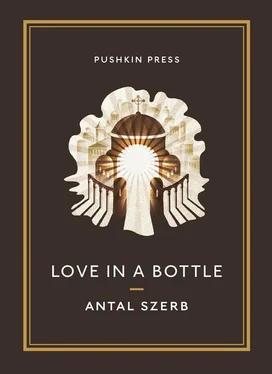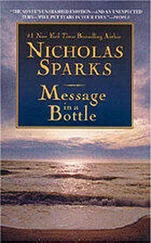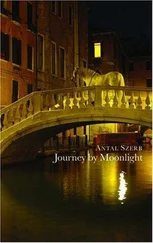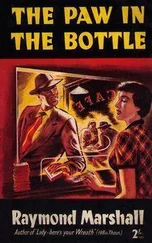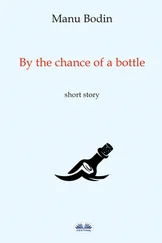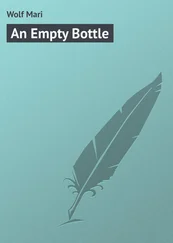Antal Szerb - Love in a Bottle
Здесь есть возможность читать онлайн «Antal Szerb - Love in a Bottle» весь текст электронной книги совершенно бесплатно (целиком полную версию без сокращений). В некоторых случаях можно слушать аудио, скачать через торрент в формате fb2 и присутствует краткое содержание. Год выпуска: 2013, Издательство: Pushkin Press, Жанр: Классическая проза, на английском языке. Описание произведения, (предисловие) а так же отзывы посетителей доступны на портале библиотеки ЛибКат.
- Название:Love in a Bottle
- Автор:
- Издательство:Pushkin Press
- Жанр:
- Год:2013
- ISBN:нет данных
- Рейтинг книги:5 / 5. Голосов: 1
-
Избранное:Добавить в избранное
- Отзывы:
-
Ваша оценка:
- 100
- 1
- 2
- 3
- 4
- 5
Love in a Bottle: краткое содержание, описание и аннотация
Предлагаем к чтению аннотацию, описание, краткое содержание или предисловие (зависит от того, что написал сам автор книги «Love in a Bottle»). Если вы не нашли необходимую информацию о книге — напишите в комментариях, мы постараемся отыскать её.
and
.
Love in a Bottle — читать онлайн бесплатно полную книгу (весь текст) целиком
Ниже представлен текст книги, разбитый по страницам. Система сохранения места последней прочитанной страницы, позволяет с удобством читать онлайн бесплатно книгу «Love in a Bottle», без необходимости каждый раз заново искать на чём Вы остановились. Поставьте закладку, и сможете в любой момент перейти на страницу, на которой закончили чтение.
Интервал:
Закладка:
I do not love coquettes. I can’t help it — I just don’t like them. According to Flaubert this is one of the chief characteristics of the bourgeoisie. But I don’t believe him. I don’t feel free to speak ill of one of the dead lions of literature before he is rehabilitated… but my thoughts run the opposite way. The people who love coquettes are precisely the managers of smaller banks and the fathers of families, because for them the coquette stands for some secret, disturbing, alternative world in whose darkness the atavistic lust of the male for the Mysterious Woman can find a home. But in my view the coquette is no more mysterious than an actress or an eminent ecclesiastical lawyer: all three life forms are akin to my own. Whenever, in those long evenings spent in coffee houses, I have found myself talking with my friends’ girlfriends about the more worrying financial problems in their lives (it’s rather like talking to a civil servant about the differences between mystically graduated levels of staff remuneration), or again when, simply ignoring the ladies’ presence, I have taken up the ongoing debate with my friends about whether or not Jóska Erdélyi is a great poet, I have often thought that if in the course of some naturally occurring process people were divided into two sorts, the coquettes and the intellectuals would both end up on the same side, the side of those who have no faith in God. I love coquettes as my fellow creatures, and sometimes as personal friends, like shadowy younger sisters — but that I don’t like them as women, as hidden secrets, or indeed as enemies, is not a question.
Meanwhile day had broken, with deep colours invading the sky, if rather pallid on people’s faces as they set off shivering towards their beds. By this stage most of us were completely sober, and our mutual farewells contained some embarrassing memories. I shook hands with M. Robinet and whispered in his ear: “You’re a real pimp, old fellow”—which pleased him immensely. I said a few simple words to the elderly Russian Duchess about humility and suffering, and sent my greetings via the English girls to their uncles the majors. I assured the little Scottish girl that ‘my heart was in the Highlands, my heart was (indeed) not there’.
So far, so easy. It was only when I found myself facing the young girl, now standing serenely beside the Highland Scot, that the pain wrenched my guts. The lies I had told, my drunkenness, Marcelle, my bad conscience, everything fell away. I became unusually human as I asked her, in the rising dawn wind:
“Shall I see you again?”
“I don’t think so.”
“Don’t be angry with me,” I said, struggling painfully to find the right voice for the occasion without betraying my deep emotion. “I’m willing to make any sacrifice for you. I’ll learn to play bridge, and I won’t go to the Bibliothèque nationale for a whole month.”
“It’s still not possible,” she said sadly.
“Never?”
“Nevermore.”
“But why?”
“I’m leaving tomorrow.”
“Where for?”
“Home. Wellington. New Zealand.”
New Zealand!
The stupendous vastness of the planet, the immense oceans dividing its separate worlds, the journey that takes so long it seems to symbolise death, trains that we watch helplessly in our very worst dreams, and the terrible utterance of Ananke, Goddess of Fate, with her voice of brass, all plunged into my soul like the damned in Michelangelo’s paintings. The sense of universal malice that seconds before had been so doggedly asleep was now up on its hind legs, shrieking and dancing with impotent rage, while my neurotic fears stood by, whimpering. Love, like a trapped bird, hurled itself frantically around inside my breast, while pale-fingered Grief dropped tears in my eyes… producing the sort of orchestrated chaos inside me you would might expect if a disorderly adolescent male were left to wander freely in a girls’ hostel, at bathtime.
And there was nothing to be done. As the cosmic void opened out before me I came face to face with the Not and the Never — all that was left of my imaginary paradise of love. I embraced her, for the first and last time; now it would have made no difference had I simply killed her.
And then, at the very last moment, with the locomotive of fate already blowing its whistle, I remembered that none of this was true. I wasn’t embracing her for the first time, and more had happened between our bodies than just the present tearful moment. Every woman’s body, as I said, has a quite different feel in a man’s hand. These subtle differences cannot be approached through words, or at best, only through similes. There are women whose touch is like holding a flower in your hands; others are more like a solid mass that suddenly explodes; others seem to be on fire. There are those who remind you of ham on buttered bread, and others, the vast majority, who evoke nothing at all.
The New Zealand girl was a vision of touch, if I might coin a phrase. She was entirely of a piece with the girl I had kissed in the depth of that night of song. She was the unknown goddess, the dark lady of the sonnet. She, whom, alas, I would never see again.
Now I shall be silent for a while. The great poets convey the most truly significant moments with the fewest words. “And all my pretty ones?” cries Shakespeare’s Macduff, when he learns that, as was the practice of the time, his wife and babes have been murdered.
A little later, I took Marcelle back through the Parc de St Cloud to Ville-d’Avray on the far side, where we all three (including Pilaszanovits) lived in the same boarding house. On the way I observed a bitter silence, but Marcelle rattled on about one of the waiters, from Cigogne, who had accidentally drunk some petrol instead of an aperitif, after which the poor fellow had to sound a horn if anyone crossed the road in front of him.
In the ancient trees of the park the birds were waking up, thousands and thousands of them, birds of every kind, whose names one never knew, suddenly calling aloud as if in response to some secret alarm signal only they could hear. Every one of them was singing. In the whole of the sky there was not an inch of empty space — every atom of the fresh morning air was filled with birdsong. But what was there for them to shout about? Were they praising God, as St Francis taught, or demanding breakfast, or greeting their spouses, these precious little birds of the sky? And then they started to take off, in all their thousands and thousands, large wings and small flitting about with a freshness for which there are no words, every one soaring on wings… and it was as if the very next moment the trees themselves would fly up after their beloved inhabitants, along with the green marble basins, the slow-footed flights of marble steps, the pale statues of gods, the embankment and the whole park swathed in mist, and a great darkness would arise in its place, and the Earth itself would be completely alone, with only me left behind, and the mutual loneliness of the two of us. The utter, utter loneliness.
At the door to their room I took my leave of Marcelle, with a formal kiss on the hand.
“Tomorrow,” she said grandly.
“Today,” I replied. “It’s been tomorrow for some time.”
I never saw her again. While she slept off her exhaustion after the party, I moved out of the house. After some searching I went to live in La Varenne, beside the Marne, at the other end of the Paris conurbation. At first I had a lot of difficulty: every change of line unnerved me. I had to cross the metro system from right to left, and Vincennes now stood for the way home — previously it had been Maillot, in the opposite direction. For an absent-minded person it was truly horrible. But after a while I got used to it.
Читать дальшеИнтервал:
Закладка:
Похожие книги на «Love in a Bottle»
Представляем Вашему вниманию похожие книги на «Love in a Bottle» списком для выбора. Мы отобрали схожую по названию и смыслу литературу в надежде предоставить читателям больше вариантов отыскать новые, интересные, ещё непрочитанные произведения.
Обсуждение, отзывы о книге «Love in a Bottle» и просто собственные мнения читателей. Оставьте ваши комментарии, напишите, что Вы думаете о произведении, его смысле или главных героях. Укажите что конкретно понравилось, а что нет, и почему Вы так считаете.
